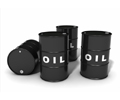

Both Brent and WTI benchmarks were firmly above the $70 per barrel mark and might soon breach the $80 mark.
Oil prices continue to rise for the fifth consecutive week. The Brent crude price closed the week by rising to $76.18 per barrel, while West Texas Intermediate (WTI) rose to $74.05 per barrel. Brent and WTI spreads are narrowing, but US output remains unchanged and, accordingly, shale oil has become less competitive compared to Brent-related crude.
Declining oil inventories and higher refining operation rates, along with high refining margins, are all strong fundamentals when it comes to supporting further upward momentum toward the $80 per barrel mark for the Brent crude price.
The global oil market might be rapidly shifting from a period of oversupply during the height of the pandemic to a shortage of supply, as physical oil market gains suggest more support for oil futures rally.
Assertively, the global oil market is not in uncharted territory anymore but, at the same time, it is very difficult to say where we are going from here as this might cause inflation fears that the fragile global economy will not be able to handle.
As OPEC+ producers have effectively managed the largest oil demand shock in history and sailed to the shore successfully, more is needed to help stabilize the global economy and contain the inflation fears, amid higher prices.
However, the question remains, is the current price at such a level as to cause serious inflation fears?
Further adjustments to output cuts prior to the end of the OPEC+ agreement on April 2022 could be a primary card for OPEC+ producers, but it must be played at the right time. Even with the breaching of the $75 mark, the tightening oil market is showing signs that demand might be higher than supply by about 2-3 million barrels per day (bpd) ahead of the 18th OPEC+ meeting on July 1 as some market participants have claimed.
Petroleum refined product prices in many parts of the world are rising on stronger demand and tighter supplies, suggesting physical markets are catching up with the futures rally and providing more fundamental support for oil prices. This has brought up discussions of an OPEC output rise, but the question remains whether it might be too early for such a move by OPEC+.
Hence, some market participants are considering an OPEC+ oil output increase at the July meeting. However, it might be too premature for OPEC+ producers to consider easing output cuts from August because demand might be impacted by the autumn maintenance season, as July barrels are the last ones to be processed for the summer high demand season for gasoline.
The latest figures from the Commodity Futures Trading Commission (CFTC) on June 22, 2021 showed that long positions on crude oil futures on the New York Mercantile Exchange (NYMEX) numbered 676,125 contracts, up by +6,807 contracts from the previous week (1,000 barrels for each contract).
Source: Arab News